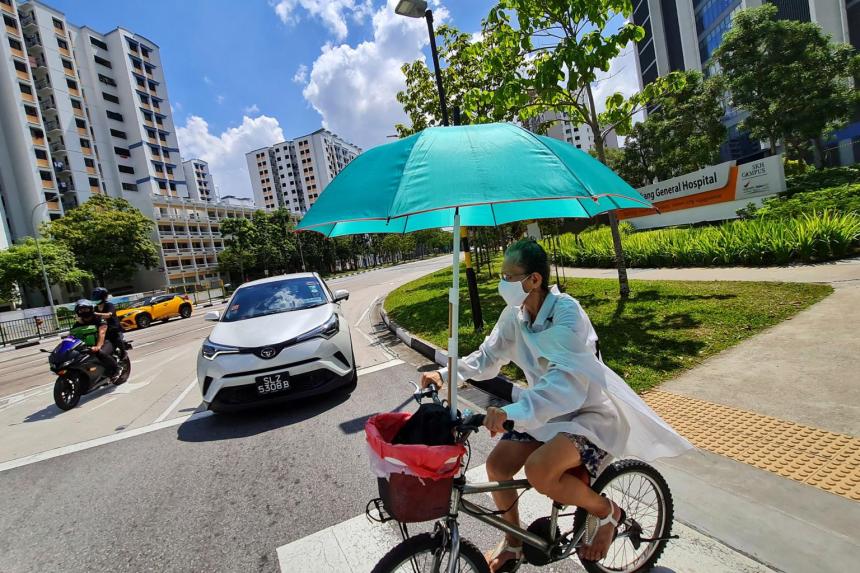SINGAPORE - Scientists here will be conducting a series of studies to better understand the impact of Singapore's rising temperatures on human health and on natural ecosystems such as forests.
As part of the second phase of the Cooling Singapore project - a National Research Foundation-funded initiative - the studies will look into various urban climate risks, leveraging modelled temperature projections, said Associate Professor Winston Chow, the lead principal investigator of the project.
Prof Chow, a climate scientist at the Singapore Management University, will be mapping the changes in the spatial and temporal patterns of heat in Singapore to determine areas that are more vulnerable to heat.
The study will look at how a range of different warming scenarios - which is determined by emissions of greenhouse gases - combined with urban development, might worsen the heat in Singapore, said Prof Chow.
Aside from these environmental factors, it will also take into account local heat adaptation and mitigation measures, for instance, reducing the waste heat rejected from air-conditioning and implementing urban design that enables cooling via channelling wind flow.
The study will look at these impacts on different groups of people including the very old, very young, and those who spend a lot of time outdoors like construction workers.
"The warmer environment poses risks, and this project will look at how big these risks are, and how soon they will occur," said Prof Chow.
The studies will run complementary to the Digital Urban Climate Twin, or Duct, a model that looks into Singapore's climate at the micro and regional scale, incorporating data on local buildings, traffic and vegetation that could affect outdoor temperatures.
The tool, which will be completed by 2023, can enable policymakers to determine the different mitigation measures that could reduce urban heat and improve outdoor thermal comfort at the precinct and nationwide level, he added.
Associate Professor Jason Lee, the principal investigator of the project looking at the impact of heat on the health of certain vulnerable groups, noted that having knowledge of the demographics of various regions in Singapore can help the team to offer more targeted heat advisories.
"For example, if an estate is identified as one of the hotter regions in Singapore, but predominantly composed of young adults, then we would be able to tailor our advisory accordingly.
"This will be different compared to another estate where there is a high population of elderly people," said Prof Lee, who is from the Human Potential Translational Research Programme at the National University of Singapore's Yong Loo Lin School of Medicine.
He will be studying the physical thresholds of three vulnerable groups - primary school children, adults who are not acclimatised to Singapore's hot and humid weather, and those aged 65 and above, and eventually hopes to derive a personalised heat-health advisory on how they can undertake outdoor activities safely as temperatures rise.
The third aspect of the project, led by the Nanyang Technological University's Perrine Hamel, an assistant professor at the Asian School of the Environment, will look at how resilient Singapore's tree and vegetation species are in the face of rising temperatures and humidity levels.
Prof Chow said: "One of the key points from our Cooling Singapore work so far is the important role green spaces play in reducing air temperatures and in providing shade structures, which will have a massive impact on one's thermal comfort when outdoors."
However, the concern is that if temperatures increase in the coming years, it would be important to study how resilient these trees continue to be.
"If they are at risk of heat, just like we are, then how would the efficiency and efficacy of these trees be compromised in terms of reducing urban warmth?" he added.
The three studies will be completed by 2025.


